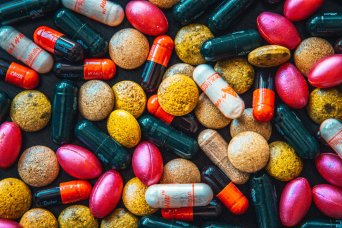- About
- Topics
- Picks
- Audio
- Story
- In-Depth
- Opinion
- News
- Donate
- Signup for our newsletterOur Editors' Best Picks.Send
Read, Debate: Engage.
| topic: | Health and Sanitation |
|---|---|
| located: | India, Gambia |
| editor: | Hanan Zaffar |
The World Health Organization (WHO) last week linked the death of almost 60 children in Gambia to cough syrups manufactured in India, which came as a shock to the world’s third largest producer of pharmaceuticals in terms of volume and 14th by value.
The WHO in its alert asked the authorities to detect and remove the ‘substandard medical products’ identified in Gambia and noted that “the stated manufacturer of these products is Maiden Pharmaceuticals Limited (Haryana, India).”
“To date, the stated manufacturer has not provided guarantees to WHO on the safety and quality of these products. Laboratory analysis of samples of each of the four products confirms that they contain unacceptable amounts of diethylene glycol and ethylene glycol as contaminants,” the report added.
With a global market share of 5.92 percent, India exported pharmaceuticals and drugs valued at $24.62 billion during 2021-22 - an increase of 18 percent from the previous year. In March 2022 alone, India exported drugs and pharmaceuticals worth $2.4 billion, an increase of 23 percent from the previous month. At the same time, the market size of the domestic pharmaceutical industry of the country is estimated to be $50 billion.
Regardless of its size, the pharmaceuticals and drugs industry has been consistently marred by substandard and falsified medical products. According to the Authentication Solution Providers’ Association (ASPA), an organisation working against counterfeiting activity and illicit economy, incidents of counterfeiting of COVID-19 products were observed in 23 out of 29 States & 7 Union Territories in India in the last two years. Further, spurious and sub-standards of pharmaceutical incidents increased by 47 percent from 2020 to 2021.
Numerous such cases of the manufacturing or sale of fake or unfit drugs have even been reported within India in the recent past. For example, in February 2021, a firm was seized in Agra city in the north Indian state of Uttar Pradesh, involved in the purchasing of expired drugs at low costs and reselling them at real values with new packaging. Similarly, in June 2021, a scandal followed the sale fake antiviral drugs Favimax400 and Favimax-200 in the western state of Gujarat; in July 2021, Uttar Pradesh’s Kanpur crime branch seized fake medicine worth approximately $50,000.
According to a report published by the Authentication Solution Providers’ Association, the reason behind the rise in counterfeiting, tampering and diversion of pharmaceuticals in India is due to reasons such as the imbalance between supply and demand for authentic products, poor practices along the supply chain, inadequate quality control at the manufacturing site, weak regulatory measures, non-adoption and right use of anti-counterfeiting technology, enforcement measures and above all awareness.
However, India also lacks proper and strict regulations over this life saving industry. “The domestic regulations and legal structures are not as well defined as required. Lack of this structure and gaps in implementation gives criminals a chance to take advantage of the system by plaguing it with substandard, falsified, spurious, or counterfeit medicines and medical equipment,” the ASPA report said.
Photo by Raimond Klavins

